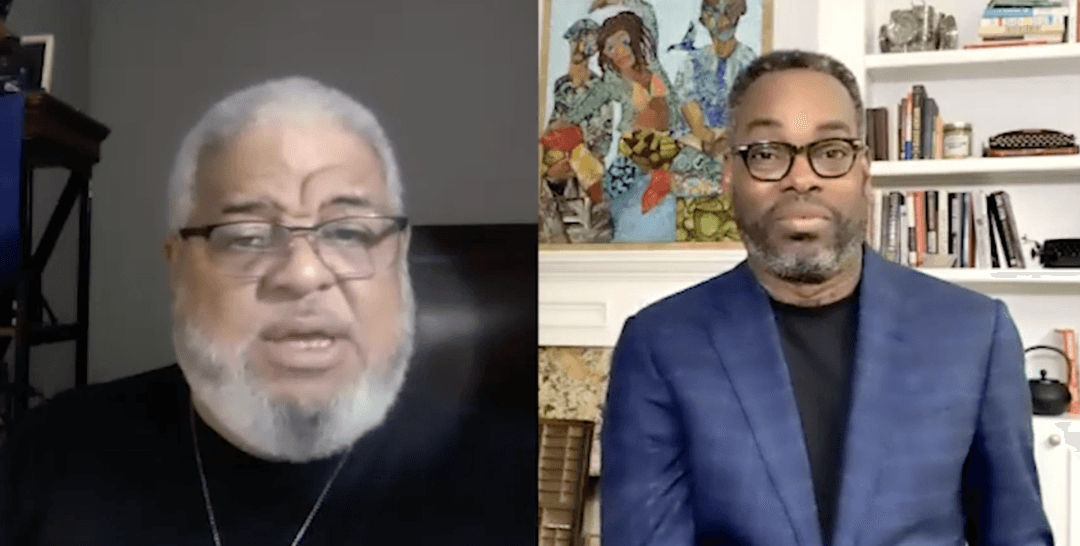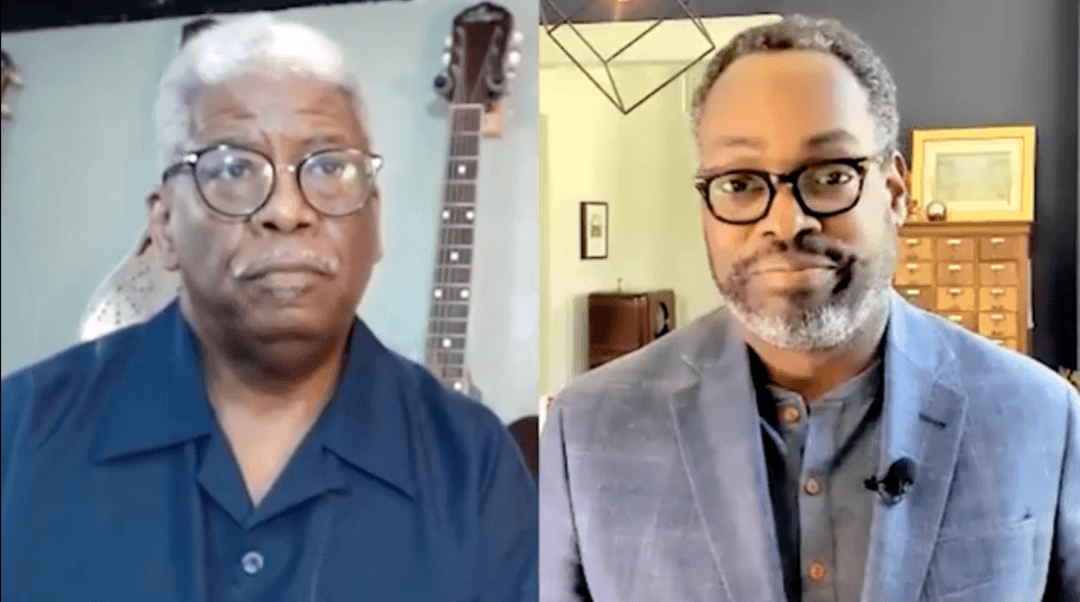Gospel’s orgins and evolution, Gospel artist Darius Twyman, Detroit’s gospel history | American Black Journal
Feb 14, 2024
This Week on American Black Journal:
Gospel radio host, historian Dr. Deborah Smith Pollards gives history lesson on Detroit’s gospel influence
In the soulful landscape of gospel music, Detroit has long been considered a major influencer, leaving its mark on the genre’s rich history and evolution. The city’s cultural and spiritual tapestry helped to nurture the growth of gospel since its beginning. Few know that history better than gospel music radio host and historian Dr. Deborah Smith Pollard.
A revered figure in gospel, Pollard has graced the airwaves for three decades as the host and producer of “Rhythm and Praise with Deborah Smith Pollard” on MIX 92.3 FM Detroit, where she shares the latest in classic and contemporary gospel music.
Pollard also taught Introduction to Gospel Music at the University of Michigan-Dearborn, where she is a professor emerita of English literature and humanities. She has co-produced McDonald’s Gospelfest and the Motor City Praisefest, lectured on gospel across the globe, and authored “When the Church Becomes Your Party: Contemporary Gospel Music,” a Library of Michigan 2009 Notable Book.
On the heels of PBS’s “GOSPEL” docuseries by Henry Louis Gates, Jr., “American Black Journal” delves into Detroit’s role in shaping the gospel art form. Pollard provides a history lesson on the origins of gospel music and how it has evolved into the contemporary sounds we hear from artists today.
[et_pb_video src=”https://youtu.be/oks9aFiF5_E” admin_label=”Segment 1 Video” _builder_version=”4.23.4″ _module_preset=”default” global_colors_info=”{}”]
Darius Twyman discusses Detroit’s major influence on traditional and contemporary gospel music
Aretha Franklin, The Winans, Mattie Moss-Clark and The Clark sisters. The list of gospel artists with roots in Detroit is long and continues to grow. From gospel music’s beginnings to the contemporary sounds of today, Detroit’s gospel artists have influenced the genre. Few have seen first-hand the impact Detroit has on the genre than gospel artist Darius Twyman.
“Gospel music in the city of Detroit is the foundation of (gospel) music across the country. Why? Because gospel music was birthed here,” Twyman told Detroit Performs host Satori Shakoor and BridgeDetroit journalist Orlando Bailey.
In conjunction with PBS’ “GOSPEL” docuseries, Shakoor and Bailey sat down with Twyman during an episode of “Detroit Performs: Live From Marygrove” to talk about his musical start, Detroit’s major influence on the genre, and the meaning behind his original song “Made It Over.” Plus, watch Twyman’s music video for “Made It Over,” produced at Second Ebenezer Church.
Born in Detroit, Twyman’s gospel music career kicked off in the late 1990s with releases such as “I’ve Got a Job,” “Moving Up,” and “Coming Soon.” Twyman has performed alongside other national gospel acts, including Dorinda Clark Cole and the late James Moore. He’s sung background vocals for Diana Ross, Kid Rock and George P Funk Clinton, just to name a few. In 2020, Twyman announced the creation of his independent label, Character Music, with his first single off the label titled “We Are Family.” Twyman’s latest release is “Tell Me Where.”
[et_pb_video src=”https://youtu.be/Gj0jtEZ4RFo” admin_label=”Segment 2 Video” _builder_version=”4.23.4″ _module_preset=”default” global_colors_info=”{}”]
Detroit’s gospel legacy: The Black church in Detroit’s enduring influence
Detroit is known to the world as the Motor City, but the city also has been a cradle for the rich tapestry of gospel music. The city’s religious history is interwoven with the soul-stirring melodies and powerful messages that emanate from its Black churches, serving as the heartbeat for the evolution of gospel music.
One such beacon is Greater Grace Temple, a spiritual pillar that has played a pivotal role in shaping the gospel landscape, in Detroit and globally. Under the leadership of the late Bishop David L. Ellis, Sr., the church transformed from being on the brink of closure to becoming a symbol of hope for the city. Facing daunting financial challenges, Bishop Ellis Sr. embarked on a journey that would birth the “City of David” – a sanctuary for the broken, the hurting, and the lost.
Following Bishop Ellis Sr.’s passing in 1996, his son, Charles H. Ellis III, took up the mantle. Since taking the helm, Bishop Ellis III has taken the church to new heights, witnessing an unprecedented surge in membership, and in 2002 the church celebrated the opening of its 20-acre complex known as the “City of David.”
In conjunction with PBS’ “GOSPEL” docuseries, Bishop Ellis III, a member of American Black Journal’s Black Church in Detroit Advisory Panel, talks with “Detroit Performs” host Satori Shakoor and BridgeDetroit journalist Orlando Bailey about the history of Greater Grace Temple and the legacy of his late father, as well as the whooping tradition among African American preachers and his hopes for the future of gospel music in Detroit. Plus, watch a music video of Bishop Ellis III performing his original song “Done For Me,” with gospel singer Paul Porter.
Stay Connected
Subscribe to Detroit PBS YouTube Channel & Don’t miss American Black Journal on Tuesday at 7:30 p.m and Sunday at 9:30 a.m. on Detroit PBS, WTVS-Channel 56.
Catch the daily conversations on our website, Facebook, Twitter and Instagram @amblackjournal.
View Past Episodes >
Watch American Black Journal on Tuesday at 7:30 p.m. and Sunday at 9:30 a.m. on Detroit Public TV, WTVS-Channel 56.
Stay Connected
Subscribe to Detroit PBS YouTube Channel & Don’t miss American Black Journal on Tuesday at 7:30 p.m. and Sunday at 9:30 a.m. on Detroit PBS, WTVS-Channel 56.
Catch the daily conversations on our website, Facebook, Twitter, and Instagram @amblackjournal.
Related Posts
Leave a Reply
Your email address will not be published. Required fields are marked*



























